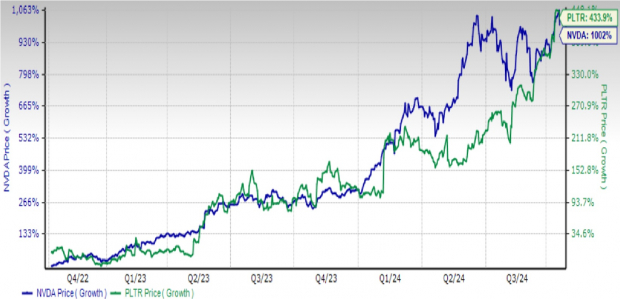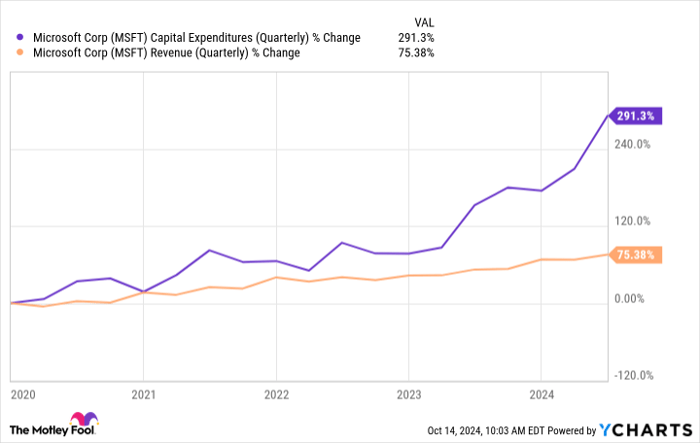It has been nearly two full years since OpenAI unveiled ChatGPT, fascinating the globe in an instant. In the wake of ChatGPT’s debut, tech giants like Microsoft poured billions into OpenAI, while Alphabet and Amazon chose to back Anthropic, a rising competitor. Nvidia has unequivocally spearheaded the artificial intelligence (AI) revolution with its GPU and robust data center services. Tesla, on the other hand, has leveraged AI for developing self-driving vehicles and humanoid robots.
Despite these groundbreaking advancements, Apple (NASDAQ: AAPL) has remained relatively discreet about its AI aspirations, save for a minor acquisition and the gradual rollout of its Apple Intelligence platform. However, the tech world is abuzz with speculations about Apple’s potential moves in the AI domain and the ripple effects these decisions could have on the company’s growth trajectory.

Image source: Getty Images.
Potential Strategic Path for Apple
Speculation abounds about Apple’s potential strategies in the AI arena. While conventional wisdom suggests Apple might emulate its tech cohorts by venturing into chip development or creating a custom large language model (LLM), these scenarios appear improbable. A highly likely scenario could involve Apple making a significant acquisition, possibly in the medical device field.
Enriching Apple’s AI Ecosystem through Healthcare
One overlooked frontier in AI is healthcare applications. Despite the vast potential of AI in health and wellness, this segment remains largely untapped. Apple has demonstrated a keen interest in health management over the years, evident in features like health monitoring tools in Apple Watch, heartbeat irregularity detection, mobility tracking, medication management, and even sleep pattern monitoring through device sensors.
Precedence Research projects that the healthcare AI market could soar to $614 billion by the early part of the next decade, driven by IoT devices like smart wearables and associated software and services. With Apple already offering an array of health-centric products, an acquisition in the medical devices sector could bolster its position in the healthcare-focused AI landscape.
Potential Challenges and Considerations
While an acquisition could be a transformative step for Apple, several factors could hinder such a move. Apple’s historical reluctance towards large acquisitions, coupled with recent setbacks like the tepid reception of its Vision Pro virtual reality headset, might deter bold forays into new territories.
Furthermore, the recent launch of Apple’s latest iPhone marks the company’s debut in the AI market. Any lackluster response to Apple Intelligence could prompt a rethink, urging the company to focus on refining existing services rather than embarking on complex and resource-intensive acquisitions.
Final Thoughts
Apple’s potential engagement in AI-driven healthcare could herald a new era for the tech titan. However, such prospects remain speculative, contingent on several variables aligning in Apple’s favor. The company may opt to consolidate its current AI frameworks rather than pursuing large-scale acquisitions, leveraging its established strengths to gain ground against industry rivals.




